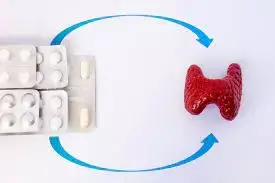- Home
- Medical news & Guidelines
- Anesthesiology
- Cardiology and CTVS
- Critical Care
- Dentistry
- Dermatology
- Diabetes and Endocrinology
- ENT
- Gastroenterology
- Medicine
- Nephrology
- Neurology
- Obstretics-Gynaecology
- Oncology
- Ophthalmology
- Orthopaedics
- Pediatrics-Neonatology
- Psychiatry
- Pulmonology
- Radiology
- Surgery
- Urology
- Laboratory Medicine
- Diet
- Nursing
- Paramedical
- Physiotherapy
- Health news
- Fact Check
- Bone Health Fact Check
- Brain Health Fact Check
- Cancer Related Fact Check
- Child Care Fact Check
- Dental and oral health fact check
- Diabetes and metabolic health fact check
- Diet and Nutrition Fact Check
- Eye and ENT Care Fact Check
- Fitness fact check
- Gut health fact check
- Heart health fact check
- Kidney health fact check
- Medical education fact check
- Men's health fact check
- Respiratory fact check
- Skin and hair care fact check
- Vaccine and Immunization fact check
- Women's health fact check
- AYUSH
- State News
- Andaman and Nicobar Islands
- Andhra Pradesh
- Arunachal Pradesh
- Assam
- Bihar
- Chandigarh
- Chattisgarh
- Dadra and Nagar Haveli
- Daman and Diu
- Delhi
- Goa
- Gujarat
- Haryana
- Himachal Pradesh
- Jammu & Kashmir
- Jharkhand
- Karnataka
- Kerala
- Ladakh
- Lakshadweep
- Madhya Pradesh
- Maharashtra
- Manipur
- Meghalaya
- Mizoram
- Nagaland
- Odisha
- Puducherry
- Punjab
- Rajasthan
- Sikkim
- Tamil Nadu
- Telangana
- Tripura
- Uttar Pradesh
- Uttrakhand
- West Bengal
- Medical Education
- Industry
Exogenous hyperthyroidism or hypothyroidism increases CV mortality risk: JAMA

According to a recent study published in the JAMA, exogenous hyperthyroidism and exogenous hypothyroidism are associated with an increased risk of cardiovascular mortality.
Cardiovascular disease is the leading cause of death in the United States. Synthetic thyroid hormones are among the 3 most commonly prescribed medications, yet studies evaluating the association between the intensity of thyroid hormone treatment and cardiovascular mortality are scarce.
A study was conducted to evaluate the association between thyroid hormone treatment intensity and cardiovascular mortality.
This retrospective cohort study used data on 705 307 adults who received thyroid hormone treatment from the Veterans Health Administration Corporate Data Warehouse between January 1, 2004, and December 31, 2017, with a median follow-up of 4 years (IQR, 2-9 years). Two cohorts were studied: 701 929 adults aged 18 years or older who initiated thyroid hormone treatment with at least 2 thyrotropin measurements between treatment initiation and either death or the end of the study period, and, separately, 373 981 patients with at least 2 free thyroxine (FT4) measurements. Data were merged with the National Death Index for mortality ascertainment and cause of death, and analysis was conducted from March 25 to September 2, 2020.
Time-varying serum thyrotropin and FT4 levels (euthyroidism: thyrotropin level, 0.5-5.5 mIU/L; FT4 level, 0.7-1.9 ng/dL; exogenous hyperthyroidism: thyrotropin level, <0.5 mIU/L; FT4 level, >1.9 ng/dL; exogenous hypothyroidism: thyrotropin level, >5.5 mIU/L; FT4 level, <0.7 ng/dL). Cardiovascular mortality (ie, death from cardiovascular causes, including myocardial infarction, heart failure, or stroke). Survival analyses were performed using Cox proportional hazards regression models using serum thyrotropin and FT4 levels as time-varying covariates.
Results of the study are:
Of the 705 307 patients in the study, 625 444 (88.7%) were men, and the median age was 67 years (IQR, 57-78 years; range, 18-110 years). Overall, 75 963 patients (10.8%) died of cardiovascular causes. After adjusting for age, sex, traditional cardiovascular risk factors (eg, hypertension, smoking, and previous cardiovascular disease or arrhythmia), patients with exogenous hyperthyroidism (eg, thyrotropin levels, <0.1 mIU/L: adjusted hazard ratio [AHR], 1.39; 95% CI, 1.32-1.47; FT4 levels, >1.9 ng/dL: AHR, 1.29; 95% CI, 1.20-1.40) and patients with exogenous hypothyroidism (eg, thyrotropin levels, >20 mIU/L: AHR, 2.67; 95% CI, 2.55-2.80; FT4 levels, <0.7 ng/dL: AHR, 1.56; 95% CI, 1.50-1.63) had increased risk of cardiovascular mortality compared with individuals with euthyroidism.
This study suggests that both exogenous hyperthyroidism and exogenous hypothyroidism were associated with increased risk of cardiovascular mortality. These findings emphasize the importance of maintaining euthyroidism to decrease cardiovascular risk and death among patients receiving thyroid hormone treatment.
Reference:
Association of Thyroid Hormone Treatment Intensity With Cardiovascular Mortality Among US Veterans by Josh M. Evron, et al. published in the JAMA.
doi:10.1001/jamanetworkopen.2022.11863
Dr. Shravani Dali has completed her BDS from Pravara institute of medical sciences, loni. Following which she extensively worked in the healthcare sector for 2+ years. She has been actively involved in writing blogs in field of health and wellness. Currently she is pursuing her Masters of public health-health administration from Tata institute of social sciences. She can be contacted at editorial@medicaldialogues.in.
Dr Kamal Kant Kohli-MBBS, DTCD- a chest specialist with more than 30 years of practice and a flair for writing clinical articles, Dr Kamal Kant Kohli joined Medical Dialogues as a Chief Editor of Medical News. Besides writing articles, as an editor, he proofreads and verifies all the medical content published on Medical Dialogues including those coming from journals, studies,medical conferences,guidelines etc. Email: drkohli@medicaldialogues.in. Contact no. 011-43720751


